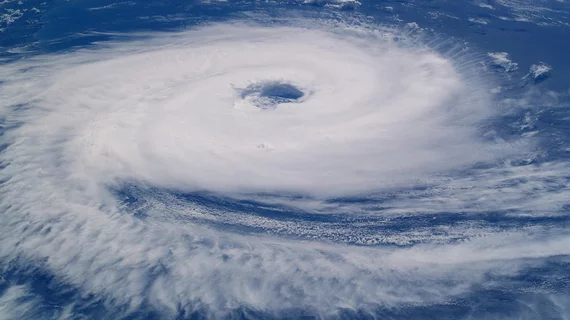Hurricane Dorian prompts public health emergencies
HHS Secretary Alex Azar declared public health emergencies for Georgia and South Carolina on Sept. 2 in preparation for Hurricane Dorian.
The hurricane, which was a Category 5 storm just days ago, was downgraded to a Category 2 on Tuesday, but could still have catastrophic consequences for the southeastern U.S. Dorian is expected to move toward Florida and north over the coming days.
By declaring public emergencies, HHS and healthcare providers have more flexibility to react to the storm and meet emergency health service needs.
"Hurricane Dorian remains an extremely dangerous storm and continues to pose a significant threat to health and safety,” Azar said in a statement. “With these declarations and waivers, we will help ensure that our fellow Americans who rely on Medicare and Medicaid have continuous access to the care they need during and after this storm.”
Recent powerful hurricanes have left certain areas devastated and healthcare providers struggling after infrastructure damage.
Dorian remained stagnant over the northwest Bahamas for nearly two days, with a storm surge of up to 15 feet. A storm surge warning has been issued for part of the Florida east coast as well as Georgia and South Carolina. Several counties in Florida have been issued mandatory evacuations as well.
Along with declaring public emergencies, HHS issued 200 personnel from the National Disaster Medical Service and an Incident Management Team, as well as 100 tons of medical equipment and supplies. There are more personnel on alert to provide more help as needed.

